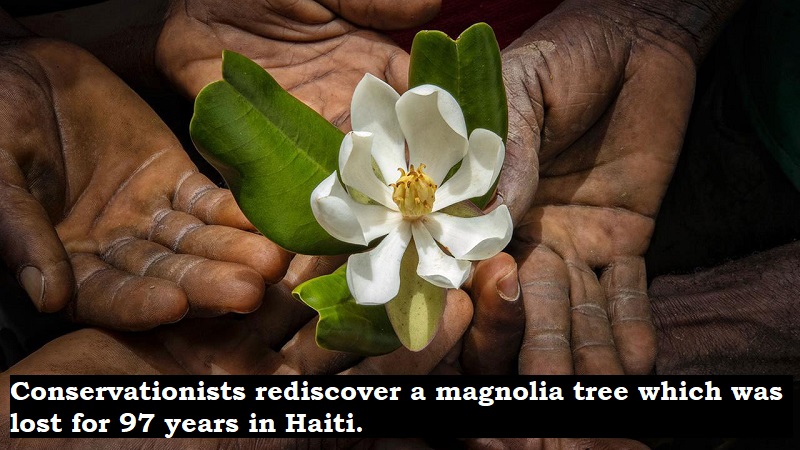
In Haiti, ecologists discovered a native magnolia. For more than 90 years, this plant species remained lost to science. The discovery of the magnolia species, whose natural habitat was lost by deforestation, took 97 years.
This species is well known for its distinctively shaped leaves and snow-white blooms. This tree, also known as magnolia emarginata and originally discovered in the Morne Colombo woodland, was included on the International Union for conservation of Nature’s Red List of Threatened Species as being in risk of extinction.
A new glimmer of hope for the preservation of Haiti’s woods has emerged as a result of this recent finding. Only 1% of Haiti’s natural forest area remains now due to a loss in forest area. Haiti is a Caribbean nation. In reality, the country’s native plants are now only found in remote highlands or ravines. This rediscovery may be able to save the nation’s habitat in such a case.
The Massif du Nord, Haiti’s largest mountain range, was the destination of a team from the Haiti National Trust in pursuit of this plant species. The fact that this particular species could endure in an altitude environment was the main driver for this search. It was after three days of the expedition that the team spotted one tree and has discovered sixteen flowering trees at various stages of development. In fact, there are plants that are in the very early phase of their growth.
Scientists are hopeful that more species can be found and preserved in the area as a result of this discovery. In actuality, the Haiti National Trust has grown four additional native magnolia varieties.
They are dispersed around the island of Hispaniola and want to use their knowledge to assist local people in supporting restoration efforts. They also want to open a nursery.
Eladio Fernández, expedition leader for the Haiti National Trust, said that the discovery of this once-lost species has given him hope and optimism for the future. Such discoveries are essential for environmental conservation.
He said: ‘Despite the bleak state of the country’s degraded forests, it still harbours species like this that are found nowhere else in the world, giving us the opportunity to save them.’

Post Your Comments